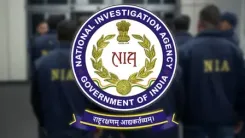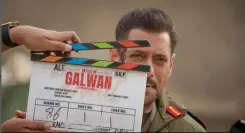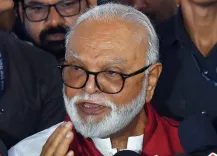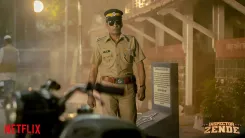Supreme Court Approves Bail for BSF Officer in Handwara Narco-Terror Case
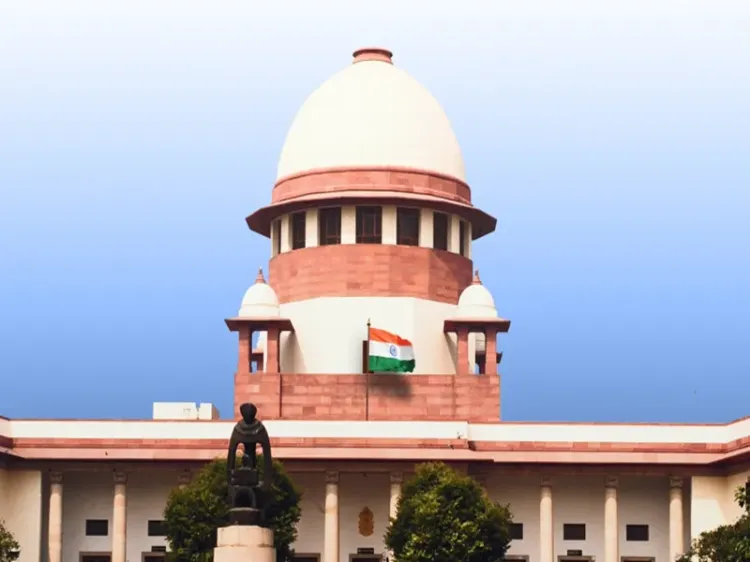
Synopsis
Key Takeaways
- The Supreme Court granted bail to Romesh Kumar, an assistant sub-inspector of the BSF.
- Delays in the trial process were a significant factor in the bail decision.
- No prior criminal history was presented against the accused.
- The NIA recovered ₹91 lakh in cash linked to the case.
- The investigation involves connections between drug trafficking and terrorism.
New Delhi, Feb 13 (NationPress) The Supreme Court has approved bail for Romesh Kumar, an assistant sub-inspector of the Border Security Force (BSF), connected to the Handwara narco-terror investigation.
Romesh Kumar allegedly colluded with drug traffickers associated with terror organizations during his posting at the Narcotics Control Bureau (NCB), where he examined drug trafficking networks in the Baramulla and Handwara regions.
“The appellant (Romesh Kumar) was apprehended on March 1, 2021, and has been in custody since. There are 15 individuals accused. Out of 361 prosecution witnesses, only six have been examined so far. Thus, it is clear that the trial is unlikely to conclude in a timely manner,” stated a bench comprising Justices Abhay S. Oka and Ujjal Bhuyan as they granted bail.
The bench led by Justice Oka observed that no prior criminal history of the appellant was presented, and with the trial expected to take an unreasonable amount of time, the accused should be released on bail under strict terms, which include surrendering his passport and ensuring regular attendance at trial proceedings to expedite the case.
“We direct that the appellant must be presented in the Trial Court within a maximum of one week from today. The Trial Court will grant bail to the appellant until the trial concludes, under the stringent conditions mentioned above,” it added.
The apex court made it clear that should the accused cause any delays in the trial, the prosecution could seek cancellation of the bail granted to him. After reviewing the full statement of Showkat Ahmed Parray, the Supreme Court remarked that it found “no evidence” linking the BSF officer to the allegations.
“The witness is an approver. Indeed, in his statement, he (Showkat Ahmed Parray) claimed ignorance as to why the appellant (Romesh Kumar) was implicated as an accused. He alleged that one Salim (a co-accused) had given cash to the appellant, which was subsequently recovered. He further asserted he was unaware of the basis for the appellant's involvement,” it further stated.
Moreover, it noted that a “strange and dubious procedure” appeared to have been utilized during the investigation, as the photo identification memo indicated that certain witnesses were shown a picture of the appellant and subsequently identified it.
“We are not making any final conclusions regarding the Photo Identification Memo (PIM) process, as it may impact the trial,” remarked the Justice Oka-led bench.
The apex court highlighted that currently, there is no evidence linking the recovery of ₹91 lakh from the appellant to the charges made.
In a significant recovery, the National Investigation Agency (NIA) had confiscated cash amounting to ₹91 lakh hidden in a field in a Jammu and Kashmir village in the Samba district.
A spokesperson from the NIA stated that ₹91 lakh in cash was unearthed from a field in Gurwal village, following confessions made by five accused individuals.
While the NIA arrested Altaf Ahmed Shah, Showkat Ahmed Parray, Mudasir Ahmad Dar, and Amin Allaie aka Hilal Mir from Srinagar on March 1, the BSF officer, Romesh Kumar, was detained on March 3, 2021.
Romesh Kumar, an assistant sub-inspector from Handwara, became the second security official arrested in Jammu and Kashmir since January 2020 for allegedly assisting militants.
The NIA had previously detained Deputy Superintendent of Police Davinder Singh for aiding Hizbul militants.
According to official sources, investigations revealed that Romesh Kumar accepted cash proceeds from drug smugglers in the Kashmir Valley for personal gain as well as for further distribution to various terrorist organizations.
The NIA case corresponds to a case initiated by the J&K Police, where during vehicle inspections in Handwara, the vehicle of accused Abdul Momin Peer was intercepted, leading to the recovery of ₹20 lakh and two kg of heroin.
A chargesheet was submitted against six individuals in the NIA special court in Jammu. The investigation further uncovered that the accused were engaged in cross-border heroin smuggling from Pakistan and distributing it in Jammu and Kashmir and other regions of the country.
The accused maintained regular communication with operatives from banned terrorist groups such as Lashkar-e-Taiba (LeT) and Hizb-ul-Mujahideen (HM), utilizing encrypted messaging applications.
The profits from these sales were reportedly being used to support the activities of the Lashkar-e-Taiba operating within the Kashmir Valley.


